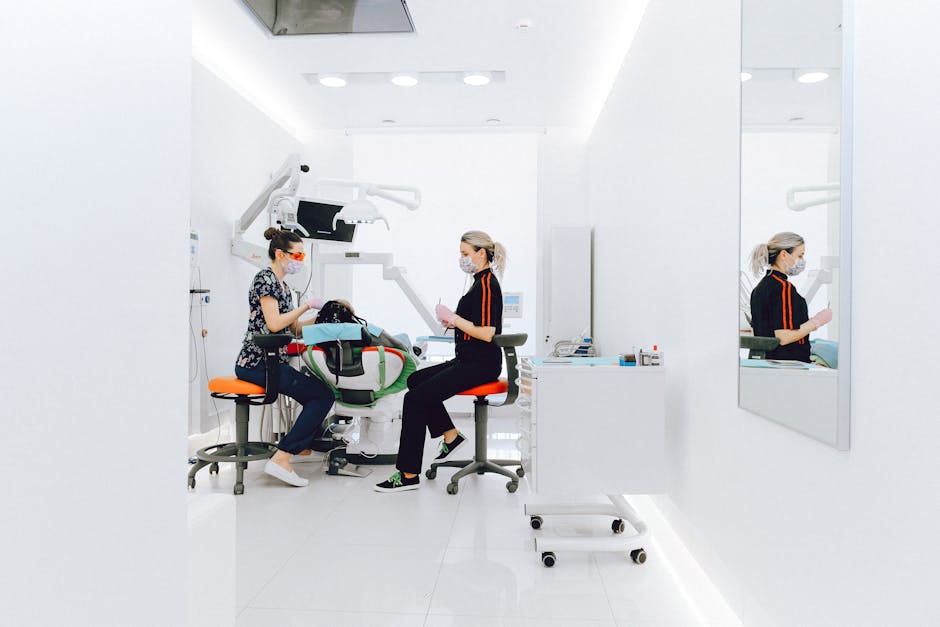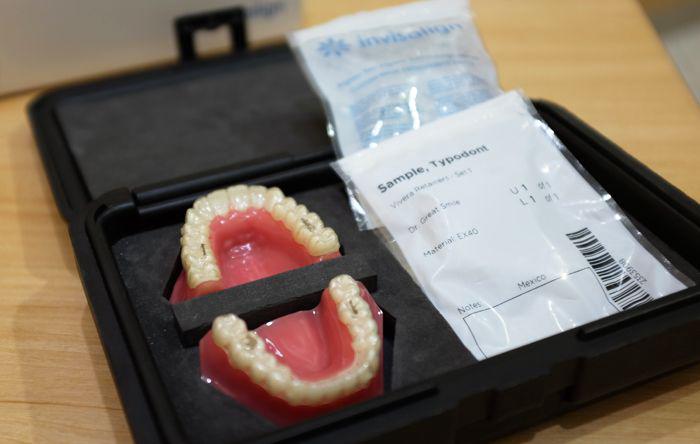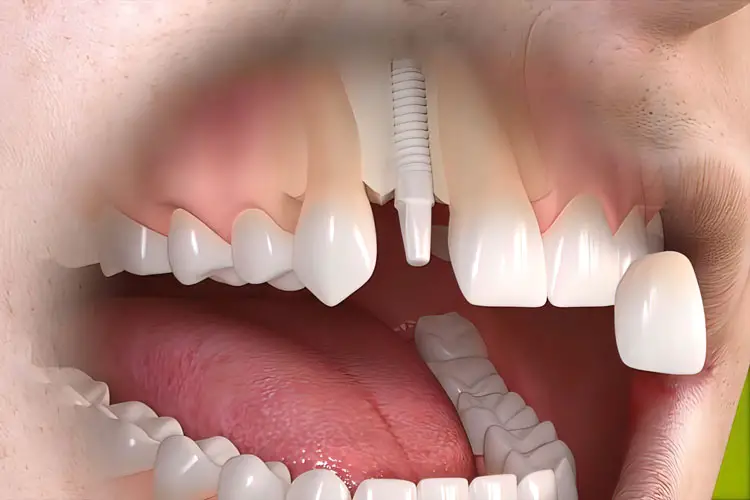In a landscape where the quest for a perfect smile often intersects with the dynamics of market forces, the unfolding narrative around Align Technology presents a compelling chapter in the broader story of dental innovation and consumer choice. This discussion not only sheds light on the intricacies of antitrust allegations but also invites us to consider the broader implications for those on both sides of the dental chair.
Antitrust Allegations
Align Technology, Inc. faces charges of unfair competition in the dental aligner and scanner markets. Accusations suggest that Align has been pushing out competition to maintain a monopoly in the realm of dental aligners. The issue has escalated to lawsuits claiming Align has been acting unfairly.
The focus of these antitrust allegations is the iTero scanner. The legal dispute began when it was revealed that Align had an interoperability agreement with 3Shape Trios, allowing their scans to be used for Invisalign aligners. However, Align chose to terminate that agreement, effectively making iTero the only option for Invisalign. This raised concerns about Align’s potential monopoly and its impact on prices for clinics and consumers seeking to straighten their teeth.
City Smiles and VIP Dental Spas responded with a lawsuit alleging that Align’s exclusive use of iTero scanners was not only controlling but also hindering competition and monopolizing the market. Their concern is that this market dominance forced dental practices to either pay more to offer Invisalign or risk being left behind.
The lawsuit has been approved as a class action, representing anyone in the U.S. who purchased Invisalign Aligners directly from Align from the beginning of 2019 through March 2022. They are collectively seeking fairness in the market.
Align, however, is defending its position. They argue that there was ample competition in the aligner market and that they simply outperformed others by providing superior products and services to dental practices.
Align also emphasizes that this lawsuit does not diminish the quality or safety of their Invisalign products, assuring customers that it is business as usual and that their clear aligners remain top-of-the-line.
In addition to the antitrust allegations, Align is also facing accusations of mishandling stock information and inflating prices. Consumers have tied in claims dating back to 2017, alleging overcharges due to Align’s market dominance.
This courtroom drama involves various stakeholders seeking fairness in competition, clearer guidelines around tech and market monopolies, and appropriate damages for those who believe they have overpaid. The outcome of this case will have significant implications for the future of the dental aligner industry.
Impact on Consumers
The impact on consumers is a crucial aspect of this dental industry dispute. The lawsuits suggest that Align’s alleged market dominance may have led to consumers paying more than necessary for their dental aligners. The argument is that consumers were not only paying for the technology and comfort of the aligners but also a premium due to the lack of competition in the market.
Real-world examples highlight the financial burden on consumers, with some reportedly spending over $8,000 for treatment. This significant expenditure raises questions about whether prices would have been more reasonable in a more competitive market.
The legal battles involve terms like “overcharging” and “stranglehold,” suggesting that Align may have capitalized on its dominant market position to maximize profits at the expense of consumers. While Align’s success may have been built on innovation and effectiveness, the concern is that the company’s market control might have gone too far, limiting competition and leading to higher costs for consumers.
The silver lining in this situation lies in the call for justice and fair play echoed in the courtrooms. The goal is not only to potentially reduce the financial burden on consumers but also to create a marketplace where competition can foster innovation and fair pricing. It’s about envisioning a future where consumer choice and price fairness are prioritized.
As this story unfolds, consumers hope for a resolution that not only eases their financial strain but also shapes a dental industry where competition and fair play are the norm. The outcome of this case could have far-reaching implications for the landscape of dental care and consumer experiences for years to come.

Legal Proceedings
Navigating the complexities of legal proceedings can be challenging, especially when it comes to antitrust laws and courtroom battles. Align Technology has been on a journey through accusations and legal disputes that have tested its position against federal antitrust laws.
In 2024, the U.S. District Court for the Northern District of California granted Align a significant relief by favorably summarizing judgment in two pivotal antitrust class action lawsuits:
- Simon & Simon, PC et al. vs. Align Technology, Inc.
- Snow et al. vs. Align Technology, Inc.
These lawsuits challenged Align’s proprietary use of its scanners and claimed that the company may not have acted fairly when marketing its devices and aligners to dentists and consumers.
The favorable ruling validated Align’s defense that its technological innovations were developed in good faith, aiming to advance the orthodontic industry into the digital age rather than unjustly hindering competitors. This vindication allowed Align to continue affirming its commitments to its clientele and providing trusted products to doctors and patients.
However, Align still faces ongoing legal challenges. Another closely watched trial is set for 2024, revolving around allegations of monopolistic behavior and anticompetitive practices. The plaintiffs in these cases seek not only acknowledgment but also tangible compensation for what they perceive as unfairly overpriced orthodontic treatments. Align, on the other hand, defends its position, asserting that it has provided beneficial competition and innovation for the market’s betterment.
The implications of these legal battles extend beyond Align Technology, potentially shaping future narratives on how technology giants navigate competitive fair play and consumer consideration within the modern legal landscape.
As the story continues to unfold in the courtroom, observers witness the complexity of balancing technological monopolies with legal principles. Align moves forward on its chosen path, facing both accolades and challenges, with court rulings potentially influencing the future chapters of this ongoing saga in the dental industry.
Align’s Defense
Align Technology confidently defends itself against the allegations, drawing upon its extensive investments in research and development and its commitment to fostering competition in the orthodontic industry. The company asserts that the lawsuits are unmerited and without basis, highlighting its annual investments exceeding $300 million in innovation and digital transformation.
Align positions itself as a pioneer in the marketplace, welcoming competition as essential for growth. The company emphasizes the abundance of alternatives available, including different scanners and aligners, as evidence of a thriving and competitive market that benefits both consumers and dentists.
Furthermore, Align brings counterclaims suggesting that these legal battles are provoked by entities unable to compete in the areas of innovation and price reduction. The company maintains that its pursuit of pushing boundaries and bringing clear aligners and digital scanners to the market serves as tools for transformative dental care rather than weapons of monopoly.
Align’s defense is intertwined with commitments to its consumers and partners, pledging to deliver revolutionary products and services regardless of the legal challenges. The company stands firm in its belief that its actions will be vindicated, and that it will continue to contribute to the advancement of digital orthodontics.

Market and Consumer Impact
The legal proceedings surrounding Align Technology have the potential to significantly impact the future of the dental aligner industry. If Align’s alleged monopolistic practices are found to be in violation of antitrust laws, it could lead to a new era of innovation and competition, with smaller players entering the market and challenging the established giants.
Increased competition may result in a wider range of choices for consumers, as companies strive to differentiate themselves through innovative technologies and competitive pricing. This could potentially make dental alignment more accessible and affordable for a broader population.
As the market evolves, pricing strategies may become more transparent and competitive, with companies vying for consumer favor by offering the best value for their products and services. The legal proceedings could serve as a catalyst for industry-wide growth, guided by the principles of consumer empowerment and fair pricing.
However, it is important to note that the transition period may come with challenges, as new players enter the market and established companies defend their positions. The industry must navigate this change carefully to ensure that innovation remains at the forefront and that the ultimate goal of delivering high-quality, affordable dental alignment solutions is not compromised.
Ultimately, the legal proceedings against Align Technology serve as a reminder that the fundamental goal of the dental aligner industry should be to foster an environment where innovation thrives and consumers benefit. The hope is for a future where:
- Choices are plentiful
- Prices are fair
- The path to a perfect smile is accessible to all










